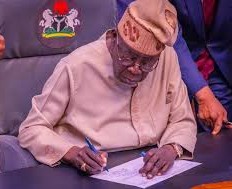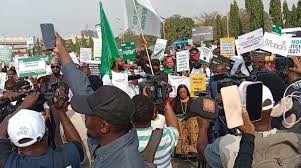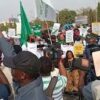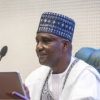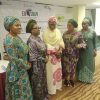On September 22, 2025, the National Assembly conducted a national public hearing as part of the ongoing constitution review process, which has been underway since the beginning of the 10th legislature. This marks a landmark stage in the process. The constitution review is taking place at a critical stage in the country’s history, during which
On September 22, 2025, the National Assembly conducted a national public hearing as part of the ongoing constitution review process, which has been underway since the beginning of the 10th legislature. This marks a landmark stage in the process. The constitution review is taking place at a critical stage in the country’s history, during which citizens, stakeholders, and civil organisations have emphasised the need to address the country’s challenges at a fundamental level, starting with the supreme law that governs the country.
The House Committee on Constitution Review held a hearing to allow Nigerians to contribute to the review of 87 documents, gathered from public consultations across the six geopolitical zones, where various groups submitted memoranda and testimonies.
At the same time, the civil society organisations, especially YIAGA Africa and the International Press Centre (IPC), as partners in Component 4 of the Support to the Media of European Union Support to Democratic Governance in Nigeria Phase Two (EU-SDGNII), launched the Citizens Memorandum for Electoral Reforms proposals for improving Nigeria’s electoral process.
Citizens’ Memorandum on Electoral Reforms aims to address the inadequacies, complexities and ambiguities of the 2022 Electoral Act and align the electoral legal framework with landmark judicial rulings that improve the electoral process. As the National Assembly undertakes another round of electoral reforms, the memo serves as a resource tool for legislators and other election stakeholders to understand priority electoral amendments and their strategic objectives.
Unveiling the initiative at a one-day consultative roundtable in Abuja with civil society groups, EU partners, journalists, and newsroom editors to deliberate on citizens’ demands for priority electoral reforms. Its promoters note that the memorandum is designed to provide a framework for priority amendments and their strategic objectives and seek to strengthen electoral institutions, promote credible elections, and enhance public confidence in Nigeria’s democracy.
The National Assembly document is divided into 13 thematic areas, which include electoral reforms, judicial reforms, legislature, inclusive governance, security and policing, power devolution, and institutional strengthening. Other issues include traditional institutions, fiscal reforms, citizenship and indigenous peoples, fundamental human rights, local government reform, and state and local government formation.
The document outlines a proposal for the distribution of states: six in the North East, seven in the North West, twelve in the North Central, six in the South East, seven in the South South, and eight in the South West geopolitical zones of the Federation. It also notes calls for electoral reform before the 2027 general elections and widespread interest in fiscal independence for local governments throughout the country.
The bills have been organised around key thematic areas identified from memoranda and consultations with Nigerians, aiming to address various governance issues in the country. The topics covered include adjusting the electioneering process, restructuring political parties, implementing electoral reforms such as single-day general elections and independent candidacy, establishing an Electoral Offences Commission, as well as considering judiciary and security reforms, including the possible introduction of state police.
Key topics for the constitution review include local government election tribunals, promoting independence, reducing systemic delays, inclusive governance, the Special Seats Bill for women’s representation, fiscal transparency, human rights, devolution of powers, recognising traditional institutions, and state or local government creation.
While the lawmakers have taken the memoranda from the citizens across the country for consolidation in their respective chambers for further debate on their floors for deliberations and alterations on the bills before sending them to State Houses of Assembly for their perusal and concurrence.
While the last process is expected to conclude with the assent by the president, the long process of getting the documents approved from state Houses of Assembly is a noteworthy consideration that will speak to the end goal of the procedures.
Another big elephant in the room that must be considered in the next phase of the constitution review in Nigeria is the subject of transparency and trust earning; as the trust level in the Nigerian governing system has continued to diminish trust among Nigerians for public activities like constitution reviews, and since the past process of the constitution review have not been as inclusive, such a development has the element of undermining public trust.
Beyond the case of public trust, which is germane, there are also bigger questions that revolve around the survival of the timeline and the achievability of the review, especially as the 2027 general elections are coming and there is a chance that political activities have the tendency to swing the ongoing procedure if not addressed.
Political influence on the constitution review raises questions about whether the current National Assembly can amend the laws in time, especially as past amendments were lengthy. Upcoming political events may also overshadow these efforts as lawmakers approach a critical stage.
The Nigerian 1999 constitution, which requires a two-thirds majority in both chambers of the National Assembly and approval from at least 24 of 36 state assemblies to be amended, has been altered at least five times since taking effect 26 years ago.
The country’s constitution was successfully amended in 2010 after a process that began in 2008 under Yar’Adua and concluded under Goodluck Jonathan. A second amendment in 2010, also under Jonathan, reformed INEC’s powers, revised election timetables, and granted financial autonomy to the judiciary.
The third constitutional amendment occurred in 2011 and received presidential assent after at least one year. The next, the fourth amendment, was enacted in 2018 under President Muhammadu Buhari and included the Not Too Young To Run Act, which reduced the minimum age for political participation. This process took two years to achieve assent.
The fifth amendment took nearly four years to be approved, starting in the 9th Assembly (2019), passed in 2022, and received President Buhari’s assent in March 2023.
A review of the history of constitutional amendments in Nigeria indicates that each amendment cycle typically takes 2–4 years to complete. With the 2027 elections approaching, there is a possibility that the current review process may be constrained by time, particularly if lawmakers do not maintain a focused approach throughout the process.
Another factor to consider is the possibility that political campaigns will begin in 2026, which is less than a year from now. Once campaigns for 2027 become the main focus nationally, attention to constitutional review may decrease as political parties are likely to prioritise electoral strategy over reform. In addition, governors, who influence state assemblies, may be less supportive of amendments that could reduce their authority over local governments or resources.
Alternation Possible if There is Consensus– Dr Tony Onyima
Dr Tony Onyima, a constitutional analyst and Nigeria Guild of Editors fellow, is optimistic that a successful constitutional amendment before the 2027 elections is possible if lawmakers stay united and committed.
In an interview with the NDR, he explained that certain new provisions in the proposed law are considered straightforward for lawmakers to implement, as they may enhance President Bola Tinubu’s profile in advance of the elections.
The National Assembly can implement the amendments to the 1999 constitution, provided there is consensus, genuine intent, and commitment among stakeholders. The National Assembly is operating according to an established timetable. Consensus has been achieved on several matters, some of which are regarded as immediate priorities. The President is recognised as someone who values his place in history, and it is anticipated that he will support and encourage the National Assembly in advancing certain amendments, thereby sharing in the resulting achievements.


